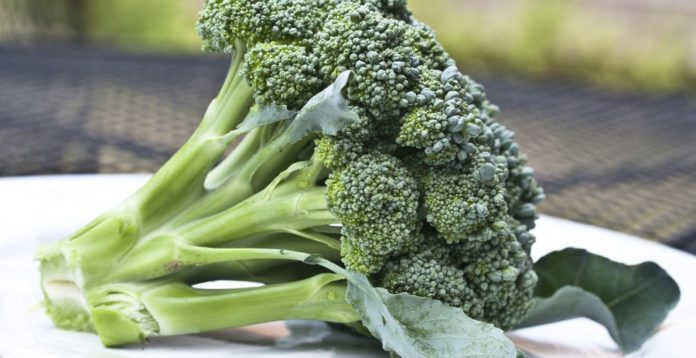New research has identified one of the key cancer-fighting mechanisms of sulforaphane, a type of chemical found in foods such as broccoli, cabbage, and kale. The findings, published in the journal Oncogenesis, suggest that this much-studied chemical compound may be able to move beyond cancer prevention and toward therapeutic use for advanced cancer.
Sulforaphane, which belongs to family of phytochemicals called isothiocyanates, has long been of interest to scientists for its cancer-fighting properties. Through a series of epigenetic mechanisms, sulforaphane helps to maintain proper cell function and is believed to reduce the risk of developing many different types of cancer.
In laboratory studies, sulforaphane has shown toxicity to a number of human cancer cell lines, including prostate, breast, ovarian, colon and pancreatic cancer, and in animal studies it decreased metastases of prostate cancer. Additional research suggests that the chemical may also be a key player in preventing the development of arthritis, and one recent study found it may even reduce symptoms of autism.
The new study, led by researchers from Oregon State University and the Texas A&M Health Science Center, identified a particular enzyme in prostate cancer cells, SUV39H1, that is affected by exposure to sulforaphane. Aside from potential dietary approaches, the researchers said that this establishes SUV39H1 as a new therapeutic target, in general, for advanced cancer.
High doses of sulforaphane could have therapeutic value
The researchers noted that pharmacologic doses in the form of supplements would be needed for actual therapies, beyond the amount of sulforaphane that would ordinarily be obtained from dietary sources such as broccoli. Research also needs to verify the safety of this compound when used at such high levels.
But a growing understanding of how sulforaphane functions and is able to selectively kill cancer cells indicate it may have value in treating metasticized cancer, and could work alongside existing approaches, the authors said.
“There’s significant evidence of the value of cruciferous vegetables in cancer prevention,” said Dr. Emily Ho, professor and director of the Moore Family Center for Whole Grain Foods, Nutrition and Preventive Health in the OSU College of Public Health and Human Sciences, and lead author on this research.
“However, this study is one of the first times we’ve shown how sulforaphane can affect a histone methylation and alter gene expression in metasticized prostate cancer cells,” said Ho, who is also a principal investigator in OSU’s Linus Pauling Institute. “It begins a process that can help to re-express tumor suppressors, leading to the selective death of cancer cells and slowing disease progression.”
The evidence now shows that sulforaphane should have therapeutic value against some forms of cancer, Ho said, including late-stage, metasticized disease. Its multiple impacts on metabolic processes might also make it a valuable adjunct to existing therapies, helping them to work better.
No clinical trials have yet been done to test the value of sulforaphane in cancer therapy, although a trial is under way using sulforaphane supplements in men with high risk for prostate cancer. Results from that may help demonstrate the safety of higher-dosage supplements and set the stage for therapeutic trials, Ho said.

